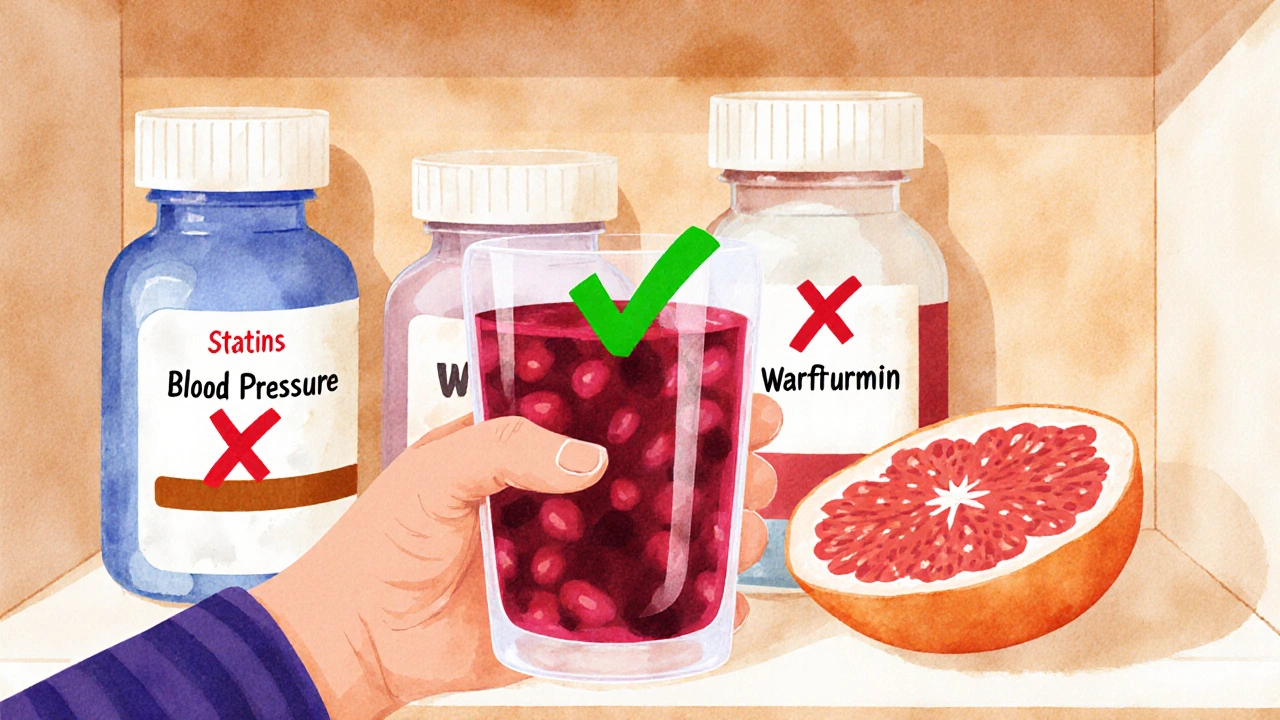CYP3A4 Inhibition: How It Affects Your Medications and What You Need to Know
When your body breaks down drugs, one of the main tools it uses is an enzyme called CYP3A4, a liver enzyme responsible for metabolizing over half of all prescription drugs. Also known as cytochrome P450 3A4, it’s the workhorse that helps clear medications from your system. But when this enzyme gets blocked—what’s called CYP3A4 inhibition—your drugs can build up to unsafe levels, leading to serious side effects or even hospitalization.
CYP3A4 inhibition doesn’t happen by accident. It’s often caused by other drugs, supplements, or even food. Grapefruit juice is the most famous offender—just one glass can shut down CYP3A4 for hours, making drugs like statins, blood pressure meds, and erectile dysfunction pills far more potent than intended. Other common inhibitors include certain antibiotics like clarithromycin, antifungals like ketoconazole, and even some herbal products like St. John’s wort (though it usually does the opposite and speeds up metabolism). The real danger? You might not know you’re taking something that interferes. A simple OTC painkiller, a new supplement, or a change in your birth control could be quietly messing with how your heart medication, antidepressant, or cancer drug works.
This isn’t just theory. People on warfarin have seen dangerous INR spikes when estrogen-based birth control was added, because estrogen affects CYP3A4. Others taking HIV meds or gender-affirming hormones have ended up with toxic drug levels because their prescriptions shared the same metabolic pathway. Even something as simple as switching from one antibiotic to another can trigger a chain reaction. CYP3A4 inhibition is why some meds work great for one person and cause a crisis for another—it’s all about what else is in your system.
That’s why the posts here focus on real-world cases where drug interactions matter. You’ll find deep dives into how estrogen changes warfarin’s effect, why ketoconazole and other antifungals can turn safe doses into overdoses, and how common medications like sildenafil or duloxetine interact with enzyme blockers. These aren’t abstract science lessons—they’re stories of people who got hurt because no one told them about CYP3A4. The goal? To help you spot the red flags before they turn into emergencies.
If you’re on more than one medication, take supplements, or have a chronic condition, understanding CYP3A4 inhibition isn’t optional—it’s essential. You don’t need to memorize enzyme names, but you do need to know that what you take today can change how your other drugs work tomorrow. Below, you’ll find clear, practical comparisons of medications that interact with this enzyme, real examples of what went wrong, and what to ask your pharmacist or doctor before starting anything new.

Pomegranate Juice and Medications: What You Really Need to Know About Drug Interactions
Pomegranate juice doesn't interact with medications like grapefruit juice does, despite early lab studies suggesting otherwise. Human trials show no clinically significant effects on drug levels, making it safe for most people on common medications.





